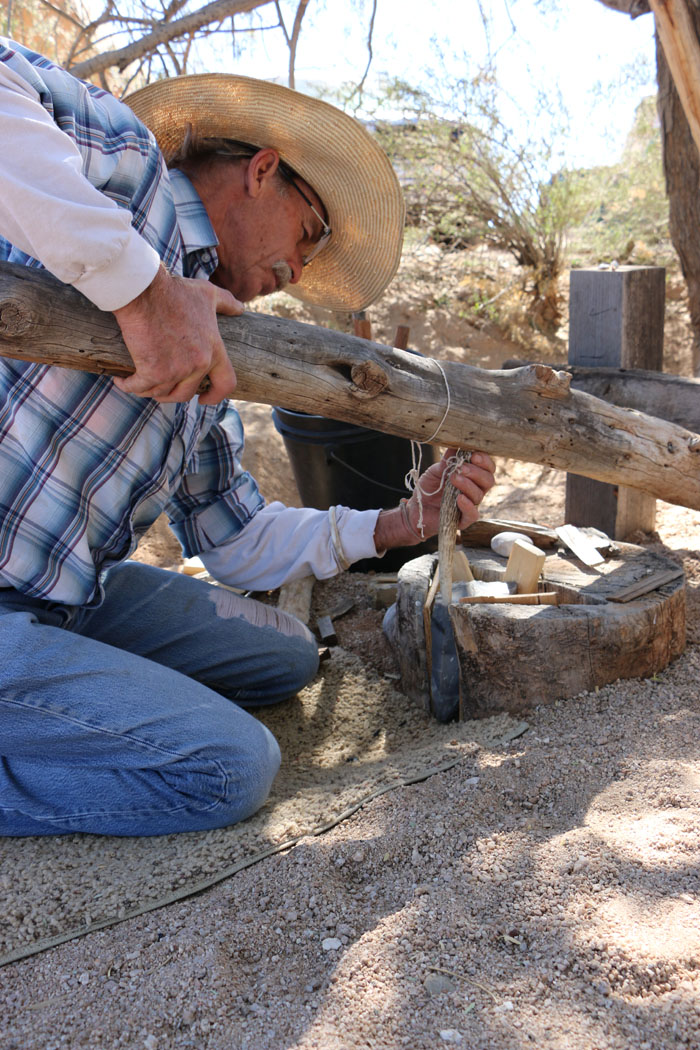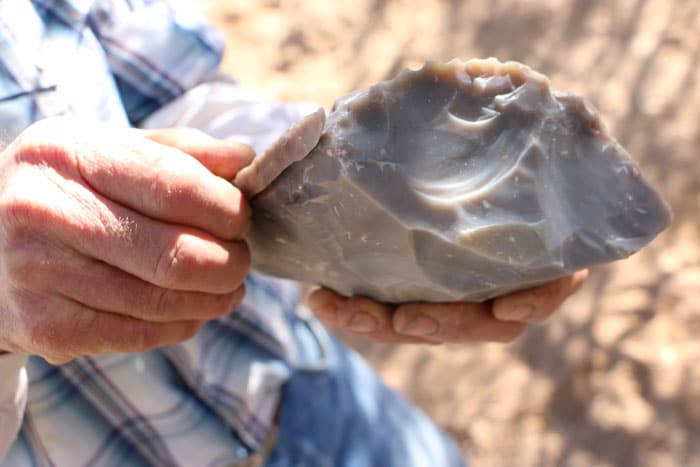Why would someone set out to become the world’s greatest flint knapper? Despite the odd name a “flintknapper” is not something akin to a “kid knapper”. Flintknapping is the verb used to describe making smooth volcanic stones like obsidian into arrowheads and spear points. But that technology became obsolete probably 160 years ago. So why learn this craft?
Greg Nunn, who is considered one of the world’s greatest flintknappers, lives in Moab, Utah. He says he fell in love with the craft forty years ago and made it his life’s work to rediscover the paleolithic technology — which had certainly become a lost art. Nunn had no difficulty finding like-minded individuals who were also into the paleolithic art, craft and hunting.
I have a theory why Nunn and thousands of others like him are taking on what they call “primitive lifestyles”. It’s to prove that they don’t live inside of the Matrix.
Consider it: millions of people feigning contentment at jobs where all they do is produce equations and algorithms on their glowing rectangles so that others on their glowing rectangles are impressed with their likes. “Virtual” products are making up more and more of our GDP. Perhaps this is a good thing, as they will provide more people with more money requiring fewer resources from the earth, but in overall job satisfaction, there is no comparison.

The ancient trades require all five senses to perform and extreme motor dexterity. Ancient trades were always performed outdoors with natural materials and far more smells, sounds, and a connection with nature we cannot begin to comprehend today.
While many computer engineers attempt to gain sensory-rich experiences through playing graphically-rich computer games such as Halo. These games pale in comparison to the true high-res experience of tanning animal skin.
Taking on an obsolete and useless trade is the very best form of revolt against the Matrix. And performing these trades such as tanning leather, softening the hide of elk or deer from an animal you personally killed and skinned using your own tools you crafted — is the most full sensory experience a human can have, one that VR or the Oculus headset will never be able to emulate.
Sensory rich trades are all but obsolete and extinct, but it turns out there is a market for these tradespeople to trade and sell their wares and convert their labor into cash.
The largest of these markets and gatherings are called Rabbit Stick (in Idaho in the Fall) and Winter Count in February in Arizona (canceled this year due to Covid). These 4-5 day gatherings have grown to a level of popularity and now they are mostly sold out in attendance. Utah Stories attended Winter Count in 2018, to interview and film flintknapper Greg Nunn.
We produced a documentary (below) about our experience and came home with a newfound appreciation for primitive skills and how and why so many are choosing this lifestyle and career over corporate jobs in cubicles.
Winter Count: primitive skills make great careers







